Key Takeaways
- The psychology behind color choices in fashion.
- How to blend seasonal colors in your wardrobe.
- Outdated colors and why they lost favor.
- Upcoming color predictions for the next season.
- The influence of global events on color trends.
- Tips to accessorize with trendy colors.
- The impact of skin tone on color selection.
- How to create a capsule wardrobe with seasonal colors.
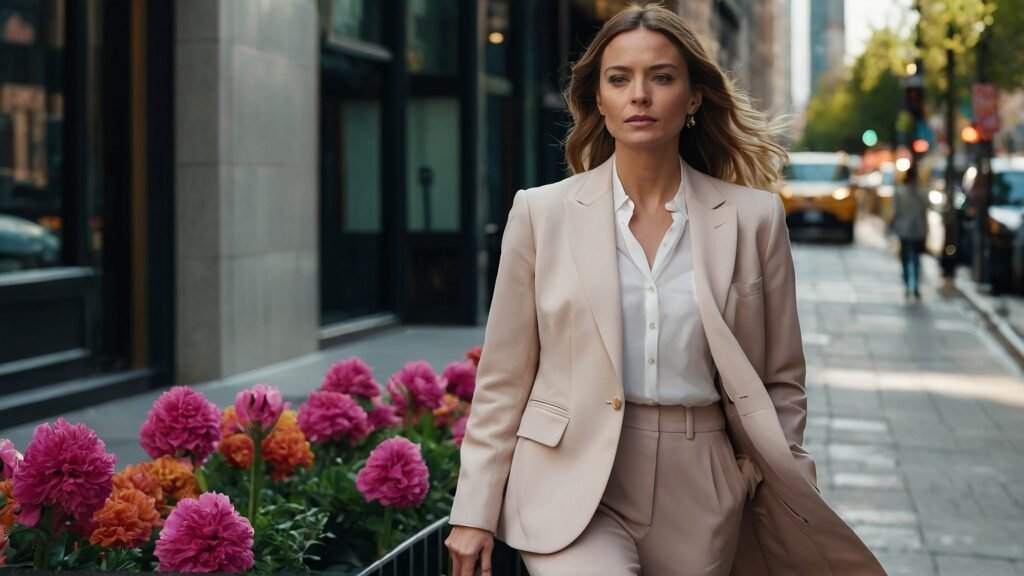
Our clothes speak for us before we do. Their colors and shades not only reflect our moods but are also a testament to the fashion trends of the season. With every changing season, there’s a palette that becomes the talk of the town. This article will dive deep into the world of color, from understanding the why behind the trend to how you can incorporate these hues into your wardrobe.
The Psychology Behind Color Choices
Colors are more than simple visual elements; they play a powerful role in evoking emotions, triggering memories, and even influencing decision-making. The impact of color psychology is evident in design, branding, and marketing, where the right color choices can shape perceptions and guide consumer behavior.
Emotional Response to Colors
Have you ever wondered why certain colors make you feel a certain way? For instance, blues might make you feel calm while reds can evoke passion or urgency. This is due to the intrinsic emotional associations we have with colors. These associations influence fashion designers when they pick the season’s trendiest shades.
Color Trends and Global Events
It’s not uncommon for world events to influence fashion. After somber or challenging times, uplifting and bright colors tend to trend, as they lift spirits and signify hope. Conversely, during periods of economic growth or stability, earthy and muted colors often dominate, reflecting society’s grounded mood.
Predicting the Next Big Color
Forecasting the next trending color in fashion is both an art and a science. Fashion designers analyze current socio-economic trends while also studying historical patterns, recognizing the cyclical nature of fashion trends. Colors and styles that were once popular often return to the spotlight, reimagined with a modern twist for today’s fashion industry.
Outdated Colors: A Look Back
Fashion trends are constantly changing, and popular clothing colors that were once considered must-haves can rapidly lose their appeal.
The 90s Neon Phase
Remember the fluorescent pinks, greens, and yellows from the 90s? While they made a short comeback, these bright neons are now reserved for specific themes or retro parties.
Early 2000s Pastel Overload
The early 2000s were dominated by pastel blues, pinks, and lavenders. Though still popular for spring, these colors have diversified into deeper, richer shades.
The Grayscale Era
There was a time when black, white, and every gray in between were staples. Though they’re timeless, the fashion world now craves more vibrancy.
Upcoming Color Predictions
As we approach a new fashion season, speculation about the dominant colors is rife.
- Soft Earth Tones: Think taupe, terracotta, and muted greens.
- Jewel Tones: Deep sapphire blues, emerald greens, and ruby reds.
- Muted Pastels: Rather than bright pastels, think more subdued versions.
- Warm Neutrals: Beiges and browns with a warmer undertone.
- Metallics: Silver, gold, and bronze making a striking appearance.
- Vibrant Pop Colors: Bright shades like tangerine and teal for statement pieces.
Colors and Your Skin Tone
Understanding the basics of color theory is key, but knowing your skin undertone is equally essential when selecting the perfect outfit.
Warm vs. Cool Undertones
People with warm undertones, characterized by green veins and a golden hue, shine in earthy tones. Those with cool undertones, with bluish veins and pink or blue hues, look best in jewel tones and cooler colors.
Neutral Tones and Everyone
Neutral colors, like beige, gray, and white, are universally flattering. However, tweaking the shade to a warmer or cooler version can elevate your look.
Accessorizing with Color
While clothing is essential, accessories play a crucial role in enhancing or offsetting your outfit. Opt for complementary colors or go bold with contrasting hues to make a statement.
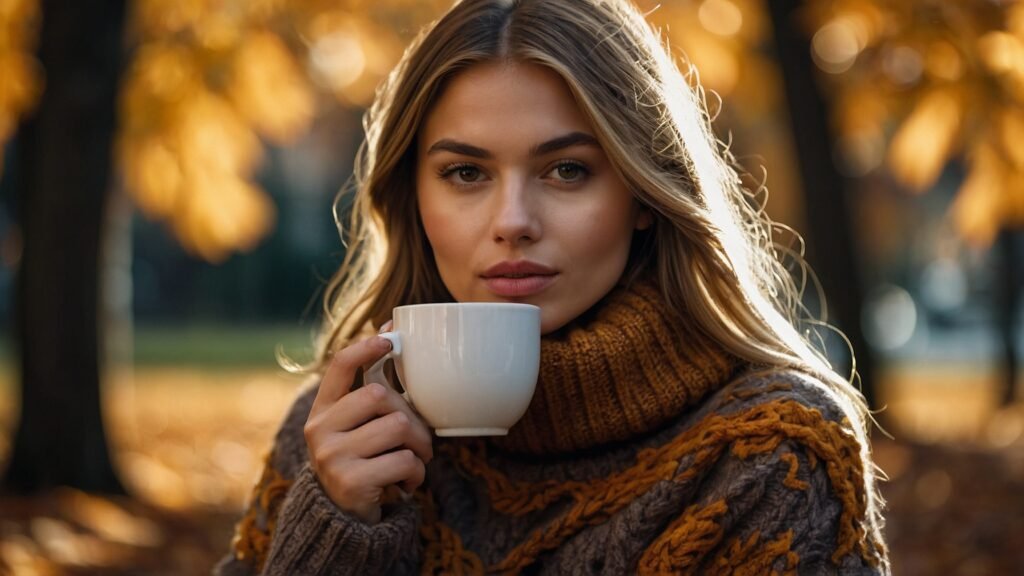
Creating a Capsule Wardrobe with Seasonal Colors
Fashion is as much about smart buying as it is about style. Creating a capsule wardrobe allows you to mix and match with ease.
- Invest in Basics: Neutral-colored tops, bottoms, and dresses.
- Statement Pieces: A few trendy colored items each season.
- Versatile Footwear: Neutral shoes with a couple in statement colors.
- Timeless Accessories: Bags, belts, and jewelry that can adapt to multiple outfits.
- Layering Essentials: Jackets, sweaters, and cardigans in both neutral and trendy shades.
Global Influence on Color Trends
Fashion is a global industry, and inspirations come from every corner of the world.
Eastern Inspirations
From the vibrant colors of Indian festivals to the subdued hues of Japanese kimonos, the East has always been a significant influence.
Western Modernism
The minimalist Scandinavian designs or the elegant Parisian style, the West brings a blend of modernity and classicism.
Southern Flamboyance
The vivaciousness of African patterns to the lively colors of South American carnivals, the Southern hemisphere offers bold and unconventional inspirations.
Incorporating Vintage Colors
Old is gold, especially in fashion. Bringing back colors from past eras can add a unique touch to your ensemble.
The Golden Age
The roaring twenties and the glamorous thirties had a palette of gold, silver, and deep reds.
The Retro Vibe
The sixties and seventies brought in oranges, browns, and psychedelic patterns.
The Chic 80s
Think metallics, purples, and electric blues. While some of these might seem outdated, they can be chic when styled right.
Kids and Colors
Kids’ fashion is no longer just pinks or blues. Today, the world of children’s fashion is as diverse as adults.
- Bold Patterns: Stripes, polka dots, and more.
- Neon Returns: Bright colors for playful vibes.
- Soft Pastels: For a calm and soothing palette.
- Earthy Tones: Making their way from adult fashion.
- Monochromes: Black and white aren’t just for adults anymore.
Styling for Men: Beyond Blacks and Blues
Men’s fashion, often considered limited in terms of color, is breaking barriers.
The Corporate Palette
While blacks, blues, and grays dominate, adding maroon, olive, or even a muted purple can elevate workwear.
Casual and Colorful
Weekend wear sees a burst of colors. From mustard yellows to teal, men are embracing vibrant hues.
Winter Hues for Men
Winter fashion for men has seen the rise of earthy tones, deep greens, and rich browns, proving that men’s fashion is anything but monochrome.
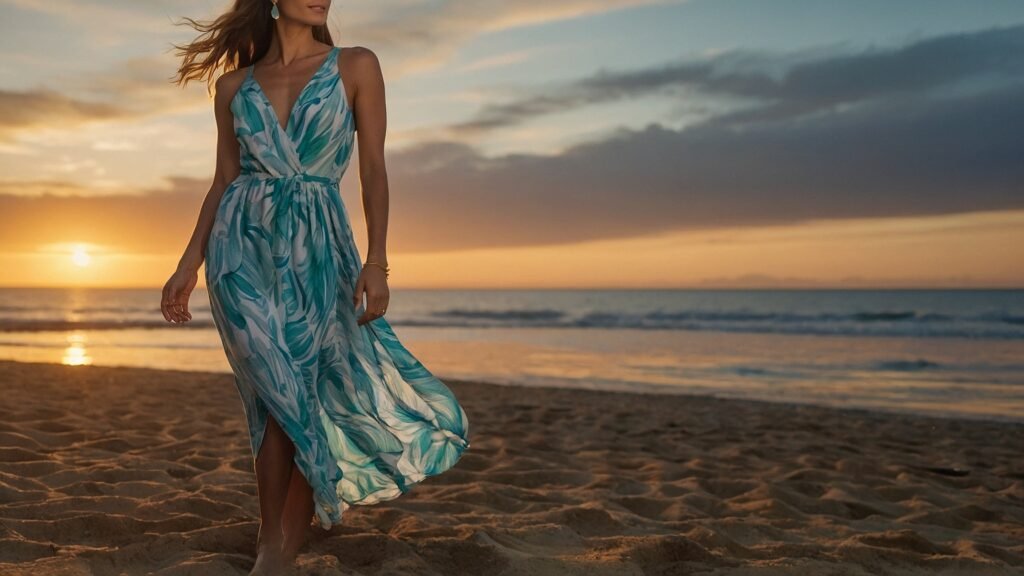
The Sustainable Color Palette
With the world moving towards sustainability, the colors of nature are becoming more prevalent in fashion.
- Leafy Greens: From mint to forest green.
- Ocean Blues: All shades, from turquoise to navy.
- Earth Browns: Taupe, beige, and deeper browns.
- Sky Shades: From dawn pink to twilight purple.
- Floral Hues: Inspired by flowers from lavender to maroon.
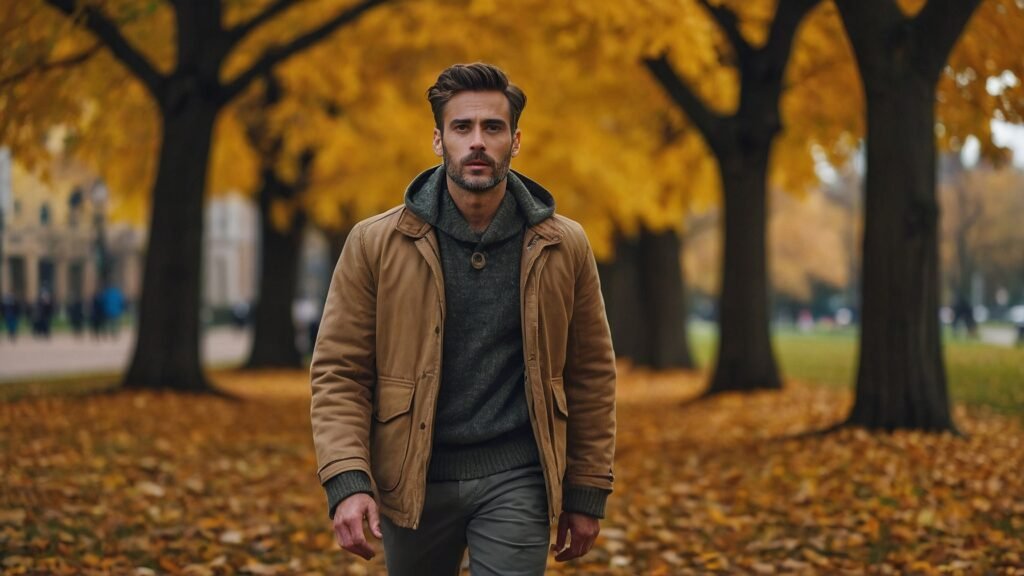
Psychological Impact of Color on Perception
The colors you wear can significantly impact how others perceive you, both in personal and professional settings.
Trust in Blue
Blue, especially navy, often exudes trust and reliability. It’s no coincidence that many corporate uniforms or business suits adopt this hue.
Yellow’s Optimism
While it can be overpowering if overused, yellow often symbolizes optimism and energy. It’s an instant mood booster!
Eco-Friendly Dyes and Sustainable Fashion
As the fashion industry evolves, there’s a growing emphasis on sustainable methods, especially concerning color.
Plant-Based Dyes
Natural dyes derived from plants like indigo or madder root offer a sustainable alternative to synthetic dyes, which can be harmful to the environment.
The Push for Transparency
Brands are now increasingly transparent about their dyeing processes, ensuring that they are environmentally friendly and don’t exploit workers.
Monochrome Styling: The Power of One Color
While mixing and matching colors is always in vogue, there’s something timeless about monochrome outfits.
Elegance in Simplicity
Wearing different shades of the same color can create a cohesive and sophisticated look. Think about an all-black outfit with varying textures or an all-white ensemble with gold accessories.
Texture Play
In monochrome styling, texture becomes crucial. Combining a smooth silk shirt with rougher linen trousers, both in the same color, can create depth and interest.
Tech and Color: The Digital Influence on Trends
With the world becoming increasingly digital, technology plays a significant role in shaping color trends.
Viral Colors
Remember the debate about “The Dress” being blue/black or white/gold? Viral trends on social media platforms can catapult specific colors into the limelight overnight.
Augmented Reality (AR) in Fashion
Brands are using AR to allow users to “try on” clothes digitally. This technology gives immediate feedback on how a particular color looks on the user, influencing buying decisions.
Colorful Insights: A Guide to Making the Right Choice
| Season | Color Palette | Mood & Vibe | Occasions | Clothing Items | Accessories |
|---|---|---|---|---|---|
| Spring | Fresh, Renewing, Gentle | Outdoor Gatherings, Weddings | Floral Dresses, Light Sweaters | Delicate Jewelry, Soft-colored Scarves | |
| Summer | Energetic, Vibrant, Fun | Beach Trips, Festivals | Sundresses, Shorts, T-Shirts | Sunglasses, Bold Necklaces | |
| Autumn | Cozy, Warm, Comforting | Thanksgiving, Casual Gatherings | Knit Sweaters, Boots | Leather Bags, Warm Hats | |
| Winter | Elegant, Introspective, Bold | Holiday Parties, Formal Events | Coats, Blazers | Bold Watches, Dark Scarves |
In Conclusion: Your Colorful Fashion Journey
Colors are the essence of fashion. They offer an expressive palette to showcase our personalities, moods, and styles.
By understanding trends and blending them with timeless classics, you can stay chic and fashionable throughout the seasons. Remember, while trends are a guide, your unique style and comfort always come first. Happy styling!
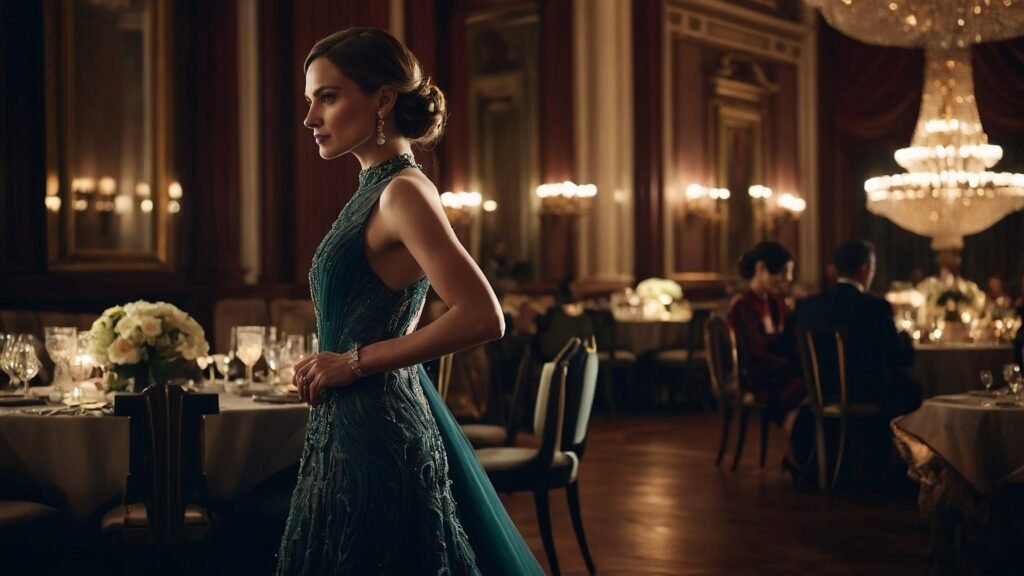
Frequently Asked Questions
What colors should I wear for a spring outdoor wedding?
Opt for pastel shades like light pink, lemon, or light blue. These colors reflect the season’s fresh and gentle vibe.
How can I incorporate bright colors into my summer wardrobe?
Focus on clothing items like sundresses, shorts, and T-shirts. Accessories like sunglasses and bold necklaces can also add a pop of color.
What are some autumn color staples for my wardrobe?
Earth tones such as brown, saddle brown, and chocolate are perfect. Think knit sweaters, boots, and accessories like leather bags.
Which colors work best for winter formal events?
Deep hues like blue violet, crimson, and dim gray bring elegance and a bold statement to formal attire. Coats, blazers, and dark scarves are great choices.
How can I know which seasonal color trend suits me best?
Consider your skin undertone and personal preference. Try different shades to see which enhances your features and makes you feel confident.
Can I wear bright colors in winter?
Yes, while deep hues are seasonal favorites, a pop of bright color can add a vibrant touch to your winter wardrobe.
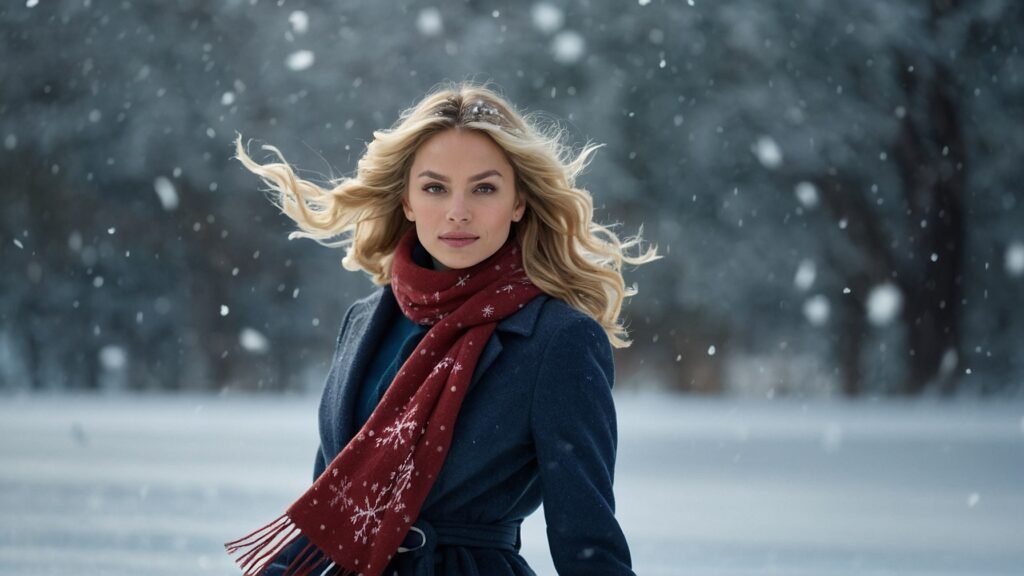
Is it okay to mix different seasonal color palettes?
Absolutely, fashion is all about expressing yourself. Don’t be afraid to mix and match to find what works best for you.
How do cultural influences affect color trends?
Cultural influences can bring certain colors or patterns to the forefront of fashion, often adding a layer of meaning and history to the trend.
How does color affect the perception of my outfit?
Colors can evoke certain moods and feelings. For example, blue can be seen as trustworthy, while yellow might be perceived as energetic.
Are there eco-friendly options for colorful clothing?
Yes, look for brands that use natural or sustainable dyes, and are transparent about their production processes. This ensures environmentally friendly choices.

Lenny Terra is a vibrant force in the world of fashion and design. Effortlessly blending his expertise in colors with a keen artistic vision, he unveils the most sought-after hues of the season, turning ordinary ensembles into iconic looks. His knack for creating visually enthralling content ensures that every piece resonates with readers, offering them a mesmerizing journey through the realms of color and fashion. Lenny’s unmatched skills not only elevate the aesthetics but also promise an enchanting experience every time. Dive into his creations and let the colors speak for themselves.
Reviewed By: Joanna Perez and Anna West
Edited By: Marcella Raskin
Fact Checked By: Sam Goldman
Photos Taken or Curated By: Matthew Mansour
